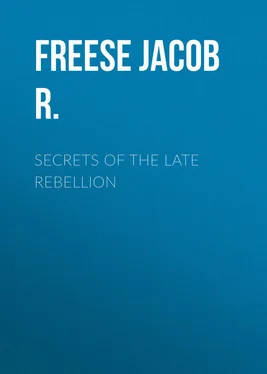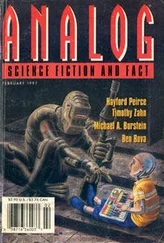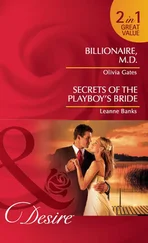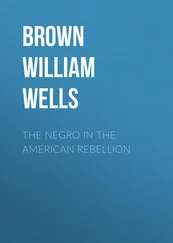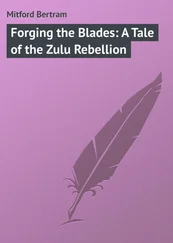Jacob Freese - Secrets of the Late Rebellion
Здесь есть возможность читать онлайн «Jacob Freese - Secrets of the Late Rebellion» — ознакомительный отрывок электронной книги совершенно бесплатно, а после прочтения отрывка купить полную версию. В некоторых случаях можно слушать аудио, скачать через торрент в формате fb2 и присутствует краткое содержание. Жанр: foreign_antique, foreign_prose, на английском языке. Описание произведения, (предисловие) а так же отзывы посетителей доступны на портале библиотеки ЛибКат.
- Название:Secrets of the Late Rebellion
- Автор:
- Жанр:
- Год:неизвестен
- ISBN:нет данных
- Рейтинг книги:3 / 5. Голосов: 1
-
Избранное:Добавить в избранное
- Отзывы:
-
Ваша оценка:
- 60
- 1
- 2
- 3
- 4
- 5
Secrets of the Late Rebellion: краткое содержание, описание и аннотация
Предлагаем к чтению аннотацию, описание, краткое содержание или предисловие (зависит от того, что написал сам автор книги «Secrets of the Late Rebellion»). Если вы не нашли необходимую информацию о книге — напишите в комментариях, мы постараемся отыскать её.
Secrets of the Late Rebellion — читать онлайн ознакомительный отрывок
Ниже представлен текст книги, разбитый по страницам. Система сохранения места последней прочитанной страницы, позволяет с удобством читать онлайн бесплатно книгу «Secrets of the Late Rebellion», без необходимости каждый раз заново искать на чём Вы остановились. Поставьте закладку, и сможете в любой момент перейти на страницу, на которой закончили чтение.
Интервал:
Закладка:
In the second chapter of this work we mentioned the fact that among the first acts of the first Confederate Congress was the authorizing of a loan of $15,000,000. Also, the fact that, at a subsequent meeting of the Congress at Richmond, President Davis stated in his message that "$50,000,000 had been subscribed in cotton." In neither case was it officially stated who had subscribed for these loans, but there is scarcely a doubt that much the larger part was subscribed by British capitalists. English manufacturers wanted the cotton; English capitalists wanted a profitable investment for their surplus funds; the sympathies of the English nobility and of the upper classes generally were then almost wholly with the Southern Confederacy; they believed, as Europeans generally believed then, that the South would succeed in establishing a separate government; that, whether they succeeded or not, the English government would so far interfere as to secure the getting of any cotton which English manufacturers and English capitalists might purchase of the Confederacy; and, under all these circumstances, it is not at all surprising that a large part of the sixty-five millions named should have been subscribed for by British subjects; nor is it surprising that after they had thus subscribed, and in some cases paid their money in advance by cashing Confederate bonds, they should have used extraordinary means – strange and eventful means – to secure the cotton.
Having thus made the frame and stretched on it the canvas, we are now ready to paint the picture, and, when finished, it will, we think, fully justify the caption given to this chapter, "Nobility after the Nuggets" – "Diplomacy Prompting the Actors."
In the latter part of September, 1863, Lord John Brew-erton arrived in the city of New York direct from London. So soon as the steamer in which he came arrived at the wharf, he directed his valet to have his baggage taken to the Astor House, while he, taking the first cab he found at the landing, directed the driver to drive him with all possible speed to the office of the Pacific Mail Steamship Company, 88 Wall Street. On reaching the office he inquired for the president of the company, Mr. Allan McLane, found him in, and for the next two hours was closeted with him. That same evening Mr. McLane called upon Lord Brewerton at the Astor House, dined with him, and again spent several hours with him in close and confidential conversation – mostly with regard to the Southern Confederacy.
The two following days Lord Brewerton spent in New York attending to various business matters, and on the third day he and Mr. McLane went together to Baltimore. At Philadelphia Mr. C. C. Pollard joined them. At Baltimore they met Colonel Ralph Abercrombie, who chanced to be in Washington at the time, and who had been telegraphed for, through Major Weightman, to meet them at Baltimore. That night and the following day were spent in consultations with Messrs. Thomas, Grundy, Wilson, and others. In the evening McLane and Pollard returned to New York, while Lord Brewerton and Colonel Abercrombie went to Washington. They walked from the depot direct to Ben Beveridge's, where a scene occurred which is difficult to put upon canvas – a scene much easier imagined than described. When the two came into the saloon Ben was absorbed in conversation with some gentlemen, and did not see them enter. The Colonel, desiring to attract Ben's attention without calling upon himself the attention of others, stepped up to the bar and asked for "Bourben whiskey," putting special emphasis on the word Bourben, as this was the Confederate password which had been agreed upon between him and Ben. The clerk behind the bar sat a bottle of Bourbon whiskey upon the marble counter for the Colonel to help himself; but still Ben did not come up, and kept on chatting and laughing with his friends. The Colonel, determining to attract his attention, put the glass to his lips, and then, with an oath loud enough to wake the dead, smashed the glass into a thousand pieces on the marble counter, and declared that such BOURBEN as that was not fit for a dog to drink. Of course, Ben rushed to the counter to see who had dared commit such an outrage in his saloon; the Lord shrank back aghast, as though an earthquake was about to open under his feet; some Indians who chanced to be in the saloon at the time became very much excited and seemed about to raise a war-whoop, and, for a moment, confusion worse confounded prevailed; but so soon as Ben recognized the Colonel he comprehended the whole situation, acknowledged that his clerk had made a mistake in setting out some other bottle than "Bourben," made a thousand apologies for the mistake, and then, in a tone as mild as that of a sucking-dove, invited the Colonel and his friend "John" into a side room, where they might take a drink alone by themselves. The outsiders had been completely hoodwinked, while the insiders had a hearty laugh all to themselves over the incident and its happy ending. Major Weightman was then sent for, and when he came he and Lord Brewerton had a conference of some hours. When this had ended, a cab was called, and Lord Brewerton was driven direct to the residence of the British Minister, Lord Lyons, while the Colonel was driven to his sister's (Mrs. Professor Joseph H. Saxton), on Capitol Hill.
Lord Brewerton remained with Lord Lyons some days, and then returned to New York, with the expectation of returning at once to England; but, on reaching there, he found a cablegram awaiting him which required his immediate return to Washington to see Lord Lyons, and, if possible, to make his way from thence to Richmond, to see President Davis. He accordingly returned next day to Washington, saw the British Minister, saw Colonel Abercrombie, and finally succeeded in making arrangements with the latter for an overland trip to Richmond. The Colonel explained to him the hardships which he would have to endure in making the trip overland, and tried hard to persuade him to return to New York and go by the way of Nassau; but Lord Brewerton insisted that he could stand the hardships, and would much prefer it to a trip by sea. He was at this time about fifty years of age, a gentleman of high mental culture, of elegant manners, had spent all his life in the very highest walks of society, and had not probably ever endured one hour of real hardship; but his health was good, and he thought he would rather enjoy, than otherwise, the hardships of which the Colonel spoke. At all events, he insisted upon trying it, and so the matter was finally agreed upon.
Next night, about ten o'clock, Major Weightman and Colonel Abercrombie left Ben Beveridge's saloon in a close carriage; called at the English embassy for Lord Brewerton; then on to Thecker's, in Georgetown, where Ben was waiting with the disguises. Here, under Ben's skilful hands, Lord Brewerton underwent a complete transmogrification. His mutton-chop whiskers were cut off; his hair chipped and hacked as though done with a broad-axe; his fashionable suit laid aside, and a rough farmer's suit substituted; in place of his fine patent leather boots, a pair of negro clodhoppers were put upon his feet; in place of his fine beaver, a coarse slouch hat; all of which my lord enjoyed and laughed over as heartily as the others. The Colonel being in disguise already, it only took a rub or two here, and a scrape or two there, to make him ready for the trip.
By midnight all were ready. As before, in the case of Lamb and Waddell, Ben led the way, and, by playing drunk, and treating the sentinel with whiskey and cigars, got them safely by the first post. From there they walked about two miles to Widow Ennis' farm-house; thence rode to Hendrickson's, nine miles; thence walked to the Falls, one mile. Here Garrett and Morse received them with open arms, and furnished such refreshments as were needed. Mrs. Morse seemed specially impressed at the presence of a live lord, and honored the occasion by putting on her best silk dress before coming down-stairs to be introduced. The guide was in waiting, and within two hours all three left their friends to cross the Potomac. To reach the place where the boat for crossing had been concealed required a walk of about two miles; and, when across, it required a walk of another mile to reach the negro hut of old "Aunt Rachel." It was now so near daylight that the Colonel deemed it unsafe to go further, so that all that day the three remained concealed in Aunt Rachel's humble quarters. They could not venture outside the door even for a moment, and at times the lord seemed in great distress at such close confinement; but the day wore away at last, and soon after nightfall the three walked about four miles to Mr. Francis Latimer's. Here the Colonel had expected to get saddle-horses, as before, but the horses were away, and nothing remained in the shape of a conveyance but an old mule, blind in one eye, and a two-wheel dirt-cart. After some consultation and delay, it was decided to take these, and in a little while after the blind mule and two-wheeled cart, with an old darkey, "Uncle Jarrett," as driver, stood before the door. Some straw had been thrown in the cart, on which our travellers might lay; but Mr. Latimer thought this beneath the dignity of a live lord, and therefore had an old splint-bottom chair set in the cart, on which the lord might sit, while the Colonel could lay upon the straw at his side.
Читать дальшеИнтервал:
Закладка:
Похожие книги на «Secrets of the Late Rebellion»
Представляем Вашему вниманию похожие книги на «Secrets of the Late Rebellion» списком для выбора. Мы отобрали схожую по названию и смыслу литературу в надежде предоставить читателям больше вариантов отыскать новые, интересные, ещё непрочитанные произведения.
Обсуждение, отзывы о книге «Secrets of the Late Rebellion» и просто собственные мнения читателей. Оставьте ваши комментарии, напишите, что Вы думаете о произведении, его смысле или главных героях. Укажите что конкретно понравилось, а что нет, и почему Вы так считаете.
